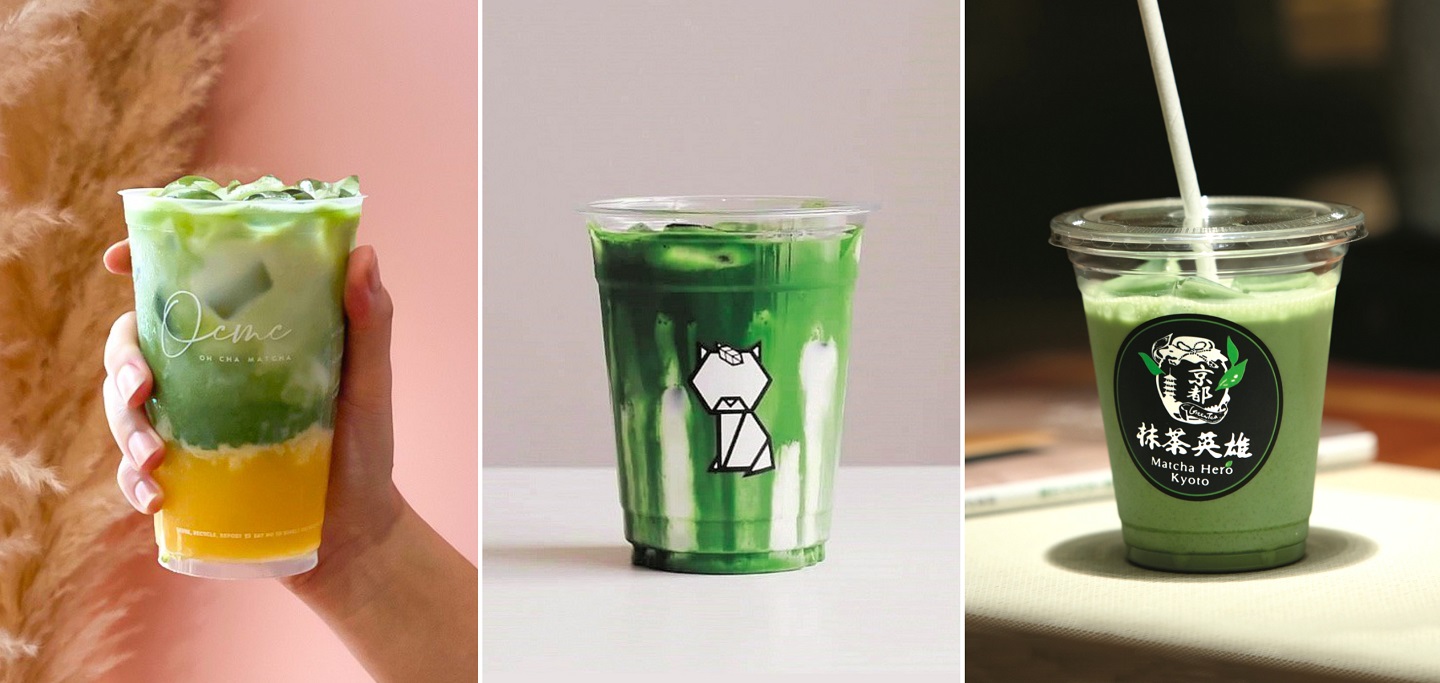
Matcha drinks from Oh Cha Matcha, Niko Neko and Matcha Hero Kyoto (Photo: Oh Cha Matcha; Niko Neko; Sam Fong/The Edge)
Parts of the world are attempting to go greener, an ideology that is playing out in areas ranging from policies to plates. The colour of vitality and lushness is making an appearance in another avenue too — cups and glasses, served hot and gently frothing or iced and over milk.
For centuries, Zen monks and the samurai in Japan consumed matcha to enhance endurance and cognitive performance prior to extended meditative sessions or training for battle. Green tea is cultivated around the country, but the Uji region of Kyoto is christened Matcha Town for the superior quality and care at its plantations.
Tea bushes are grown in the shade to curtail their growth and stimulate chlorophyll production, turning the leaves a vivid green and flush with amino acids. Only the finest leaves are handpicked, dried, destemmed and deveined before being slowly stone-ground to prevent heat from tampering with their aroma, flavour and nutrients. The result is a superfine, talcum-like powder — matcha is the only green tea served in this form — categorised according to ceremonial, culinary or premium (the unofficial stepchild positioned between ceremonial and culinary) grades. The highest grades are intensely rich in flavour and colour, owing their bright hue to the lack of oxidisation. These are typically reserved for use in the Japanese tea ceremony, a choreographic ritual that gives the beverage the respect and attention it deserves.
20200704_peo_matcha_hero_34_sam_1.jpg
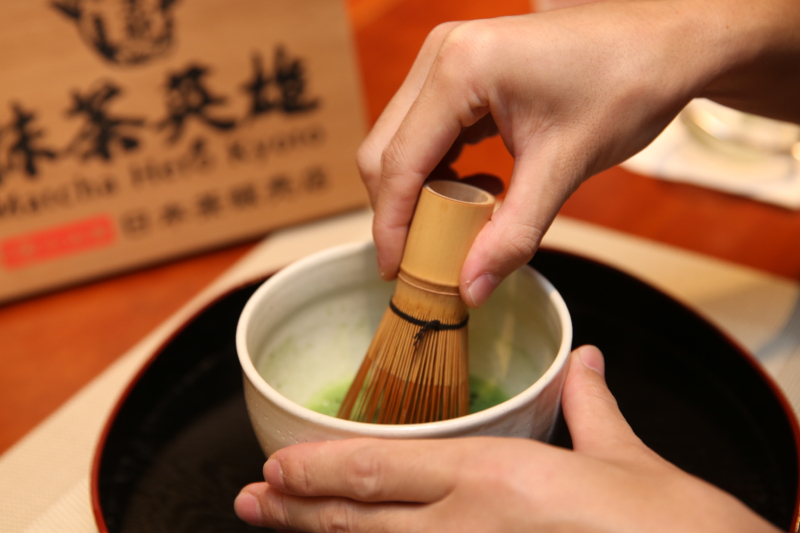
Science has confirmed what ancient knowledge understood: Matcha is ripe with health benefits. In addition to being a powerhouse of antioxidants, minerals and vitamins, it is also a natural detoxifier and boosts metabolism, energy and concentration. While ordinary green tea involves infusing tea leaves in water, matcha — whisked in hot water with a chasen (bamboo whisk) until it develops a fine, aerated foam — retains the properties of the whole leaves. As Louise Cheadle, co-founder of tea company Teapigs, says in The Book of Matcha, brewed green tea is “a bit like boiling spinach, throwing away the spinach and just drinking the water. You will get some of the nutrients, but you’re throwing away the best bit”.
In true Malaysian fashion, the local embrace of matcha has been absolute. With its balanced caffeine count — lower than coffee but not insignificant — and comparable prices averaging between RM10 and RM15, matcha teas are a viable alternative to third-wave coffees and even warrant dedicated cafés. We speak to a few such owners in the Klang Valley about their adoption of matcha and creative takes on the topic.
Niko Neko Matcha
A product of immense purity requires an austere stage, as any clutter would distract from its experience. Niko Neko’s café in Bangsar seems to be the manifestation of that idea. Behind a concealed entrance, the narrow, first-floor space sports a palette of stark white and minimal wood, the better to showcase the vivid green hues whisked into drinks and flowing like lava out of molten desserts.
molten_double_matcha_canele-.jpg
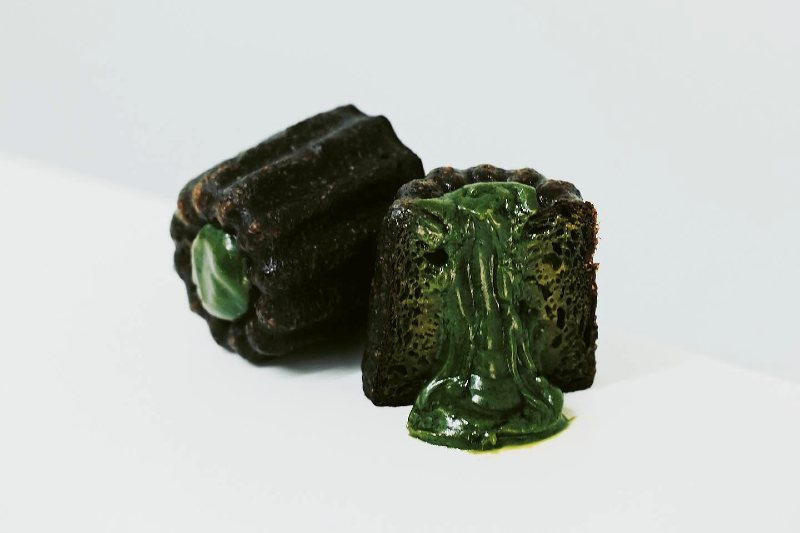
Occupying white pedestals near the full-height window are the brand’s star products: a trio of matcha powders. Ren (which means lotus flower), Kiku (chrysanthemum) and Yuri (white lily) are named after flora grown by co-founder Syun Hattori’s late grandmother in her garden in Japan. Ren is of ceremonial grade, exceptionally smooth with a strong umami flavour best described as creamy, nutty and brothlike. Kiku has a moderately umami and bitter profile while the fragrant Yuri is the most approachable, low on umami and ideal for culinary use.
“Many people still struggle to distinguish the quality of different matcha powders,” says Syun. “There is a misconception that high-quality matcha should taste bitter and strong, but it is really far more delicate and smooth, with heavy umami notes. Each of our matcha powders is best suited for a specific purpose: Ren is great for teas, for instance, and Kiku is sought after by health and fitness consumers for its balanced levels of amino acids and antioxidants such as L-theanine and catechin.”
Born in Japan, Syun remembers watching his grandfather serve matcha to prominent guests on special occasions and learning the art of the tea ceremony from his mother. Upon completing his education in the US, the Japanese-Malaysian decided to move to Kuala Lumpur and share some of his birthplace’s traditions and culture with the city. He teamed up with former classmate and fellow tea enthusiast Izzat Iskandar to establish Niko Neko Matcha.
20200706_peo_niko_neko_matcha_founders_syun_hattori_and_izzat_iskandar_2_ky_1.jpg
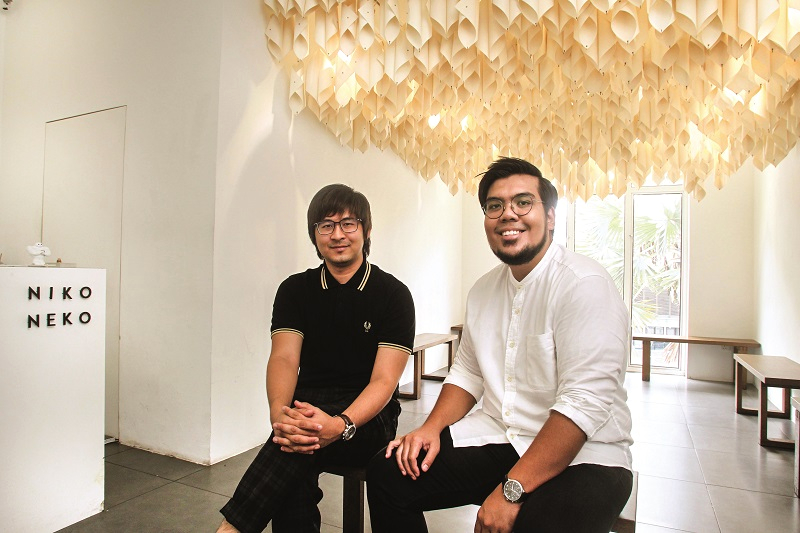
The brand name translates into “Niko the cat”, so named for its feline mascot, Niko, whose angular outline forms the logo. The spartan symbol is a reflection of the brand’s minimalist philosophy, which spans its clean packaging to the interiors of its concept café. Curious matcha-centric creations such as mocktails (try the divine Budak Melaka, with gula melaka, pandan leaves and toasted desiccated coconut), cakes and pastries tempt the customer.
“We wanted to be unpredictable and eschew the usual tea-themed logos, so we thought of Niko. The concept store, from its hard-to-find location to our in-house playlist, is a manifestation of our brand identity. It’s a holistic, sensorial package,” says Syun. “When we started out in 2015, few people knew what matcha was. So, we built that understanding through accessible products such as the matcha latte. People were also interested in the tea ceremony; so, furthering their understanding of the culture, alongside the tea itself, was part of our educational approach. We tried to balance the traditional and modern aspects of matcha through social media, our blog and over face-to-face interactions in the café.”
If the Niko Neko logo looks familiar, it is because you might have come across it at partner F&B establishments such as Breakfast Thieves, VCR Café, Yellow Brick Road Café, Wizards at Tribeca and Rage Coffee. The brand supplies its premium powders to a variety of businesses as part of its “better together” philosophy.
20200706_peo_niko_neko_matcha_ky.jpg
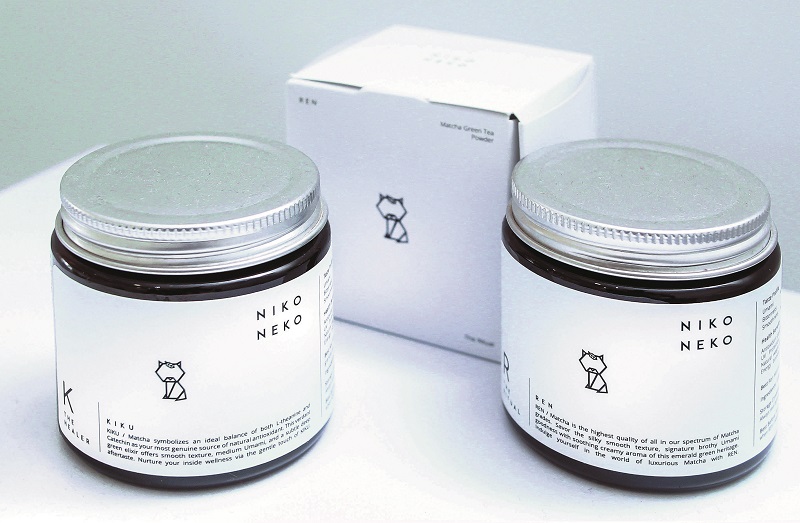
“We believe in creating a healthy and symbiotic business ecosystem, as we each have our own areas of speciality and none of us can be experts in everything. By operating in both the B2B and B2C spheres, we are uniquely able to consult on and guide user and operator experiences on both sides of the industry, which is a rewarding experience,” says Syun. The fruits of successful collaborations include the Melty Matcha Marble Loaf Cake with molten ganache (Wizards at Tribeca) and the Matcha Sourdough Croissant with white chocolate and matcha lava (Dew by Jaslyn).
As tantalising as these might look, Syun goes where the mood takes him. “My preferences change over time,” he says. “My current favourite is brewed matcha with ice-cold fresh milk to enjoy the umami explosion that you can find only in superior matcha.”
Matcha Hero Kyoto
It seemed inevitable that Masahiro Onishi would develop a fondness for tea; he grew up surrounded by enthusiasts in one of the world’s tea capitals. As the events and promotions manager of a big department store, the Kyoto native built a network of artisanal suppliers, among them the centuries-old green tea purveyor Maruku Koyamaen. It was the first brand that came to mind when Masahiro moved to Malaysia and had the opportunity to introduce a taste of Japan to KL.
For more than three centuries, Marukyu Koyamaen has run a private tea estate in Uji, the heart of matcha cultivation. Since its founding during the Genroku period at the end of the 17th century, it has produced a host of award-winning green teas, even taking home the top prize at the Japanese National Tea Competition an astounding 21 times. While Masahiro carries a selection of its green teas, it is the matcha that holds pride of place in his brand name and on the menu. Matcha Hero Kyoto opened in Tokyo Street at Pavilion KL in early 2015 as the sole importer of Marukyu Koyamaen teas in the country.
20200704_peo_matcha_hero_46_sam_1.jpg
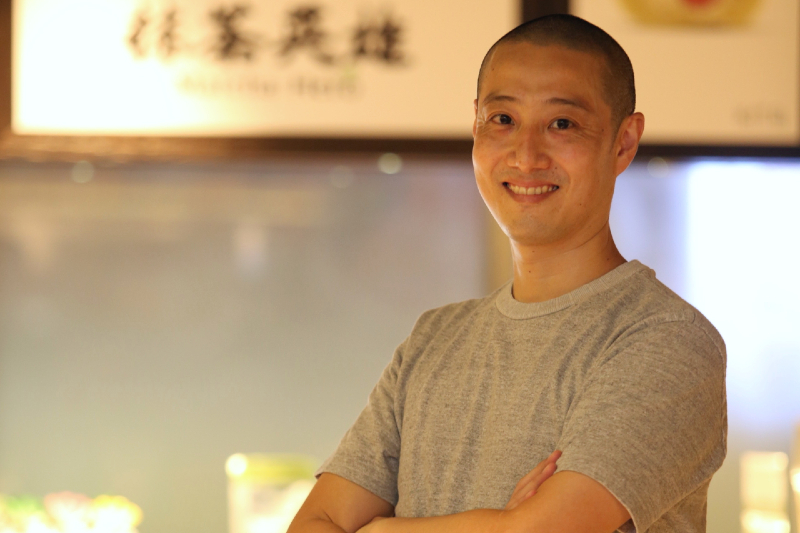
“I wanted the word ‘matcha’ to be prominently mentioned in the brand. Matcha Hero is a play on my first name,” the owner laughs sheepishly. “In our early days, few people were familiar with the ingredient. Customers would walk up to us and ask how matcha is different from green tea. I wanted to create products they could enjoy easily, like lattes. We had to invest in a lot of education initially, but as Malaysians have become healthier over the years, they are more aware of the benefits of matcha and actively seek it out.”
When Covid-19 hit our shores, Masahiro decided to refine some recipes in the interest of health, in particular reducing sugar where possible. This allowed him to emphasise the advantages of matcha, a timely move, given the upswing in demand for the pure powder in recent weeks.
“In Japanese culture, we tend to be seated when dining, but one of the first things I noticed about Malaysians was that they like to eat on the go. Because of this, we incorporated desserts into our menu from the start, especially ice cream, which continues to be among our bestsellers,” he shares.
Popular drinks include the matcha latte and usucha (“thin” matcha diluted with water and whisked vigorously to create a frothy head with a crema), while the sugar shell candies, matcha and houjicha roll, matcha panna cotta and handmade warabi mochi are often pointed to at the dessert display. The ice cream is prepared fresh at the Pavilion outlet — Matcha Hero currently also runs a pop-up venue at Isetan in Lot 10, sans ice cream — while some of the desserts are made by partner cafés or bakeries. Masahiro is eager to continue sharing the good word of matcha through tea appreciation sessions for customers and ad hoc corporate or lifestyle brand collaborations.
20200704_peo_matcha_hero_16_sam_1.jpg
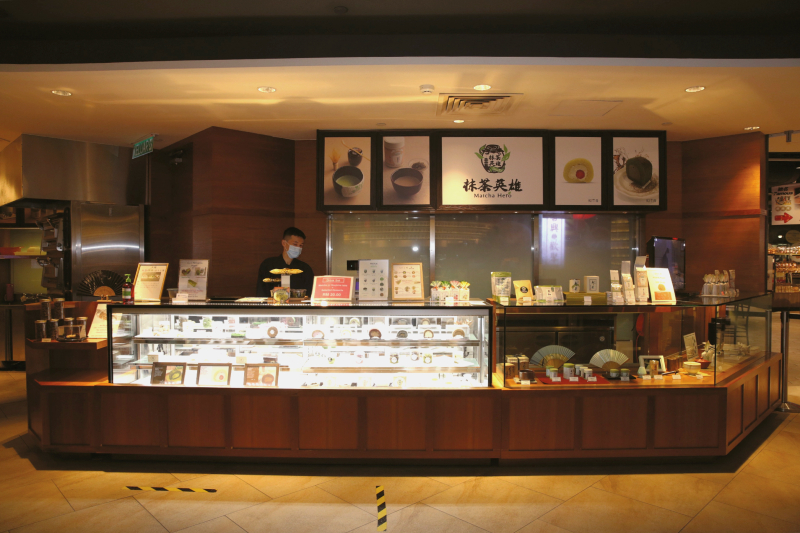
“It is by sharing that we grow,” he says. “I like Marukyu Koyamaen because it offers good value for money. It is a premium product at a fair price. They prioritise quality over quantity, and are not as commercial as they could be because they refuse to dilute the brand. I respect that and enjoy all their teas. I drink green tea throughout the day but I usually save an usucha for after lunch — it is best taken after meals. The aroma and texture of matcha, and the ritual around its consumption, always make me feel refreshed and relaxed.”
Oh Cha Matcha
Fret not if matcha is not your cup of tea — this blush-pink feather-filled parlour is throwing all rules out the window. Oh Cha Matcha’s flamboyant outlook almost dares even the sceptic to be displeased here.
Lactose intolerant? Not an issue. Soy is the default milk option in drinks, though almond, cashew, coconut, oat and fresh cow’s milks are available as an alternative — at no extra charge. Instead of sugar, stevia is the natural sweetener of choice. And just as purists might whisk their own ceremonial matcha in a corner, hesitant customers can ease into this ultra-green scene with novice-friendly matcha drinks tempered with fruits or spices.
20200312_peo_oh_cha_matcha_8827_izw_1.jpg
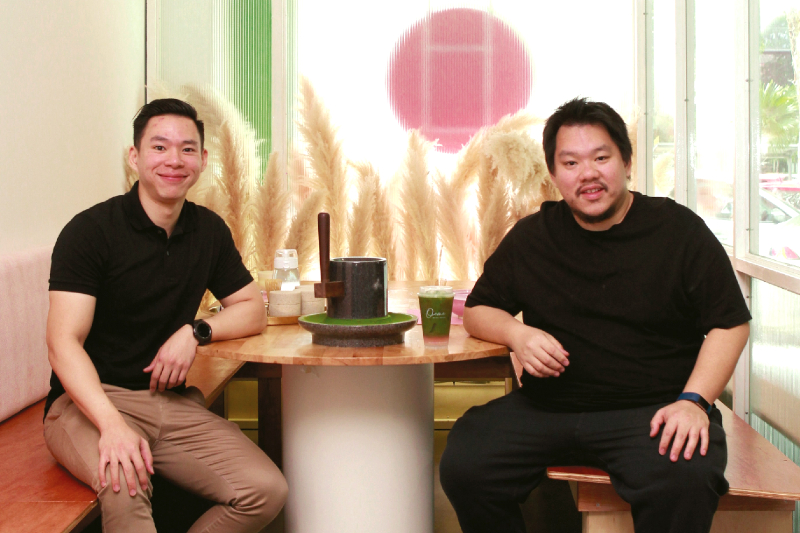
This consideration is not unusual for brothers Choong Kar Wai and Kar Heng, who were among the pioneers of the third-wave coffee movement in the Klang Valley. Kar Heng had pursued his tertiary education in Melbourne and wanted to bring the city’s coffee culture back here. The duo made their entrepreneurial debut in 2011 with CoffeeSociété in Publika Shopping Gallery, coaxing customers through the intricacies of specialty coffee. They opened Garage 51 in Bandar Sunway shortly after.
When they came across matcha in Japan, the siblings began voraciously learning everything they could about it, returning to the Far East to further their understanding. Oh Cha Matcha was launched in March in Taman Tun Dr Ismail.
“It’s a centuries-old drink that people might associate with elderly appreciators,” jokes Kar Wai. “But it has so much going for it health-wise that we thought we could play with it like we do coffee, make it fun so people can relate to it. I must make you love matcha.”
This resulted in colourful, layered concoctions featuring ingredients such as mango, orange, watermelon, beetroot, ginger, blue spirulina, sour plum, purple sweet potato and charcoal.
ocmc.jpg
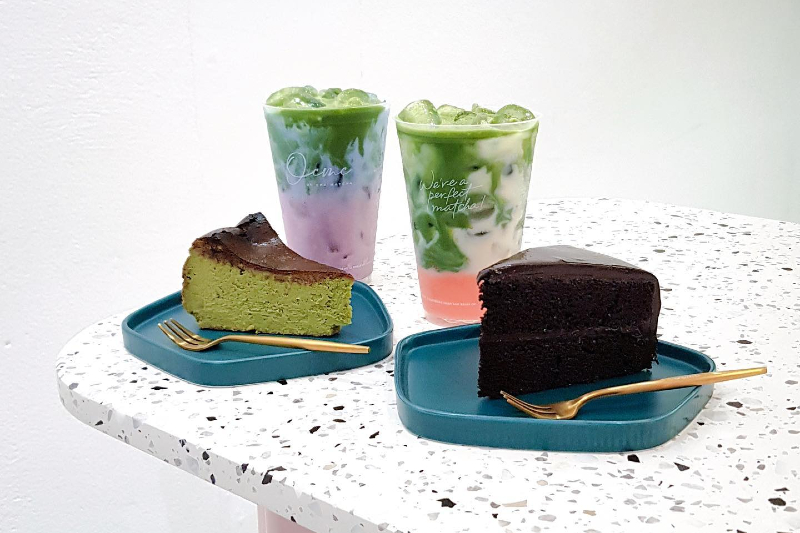
“It’s not just pretty and colourful for Instagram,” interjects Kar Heng. “Every single ingredient serves a purpose. We even have a beauty section in the menu with drinks rich in collagen.”
“My brother and I have different priorities,” says Kar Wai. “He’s extremely healthy and I try to be healthy. These drinks are good for you — zero sugar, low-calorie (under 120 calories) and all-natural — but he wants things to be as healthy as possible and I want them to be tasty. Between the two of us, I think we create the perfect recipes.”
Playing in a field beyond coffee might have been nerve-wrecking but the siblings let a decade of business experience guide them.
“Ten years ago, when we first started out, nobody drank lattes,” continues Kar Wai. “We were so nervous about failing. It was different this time around. Even before we opened, people were messaging us on Instagram asking about the new venue and menu. We were quite confident also because we didn’t love matcha immediately. That happened gradually, so we wanted to make sure we had friendly products that could be a good entry point to this.”
ocmc_shots.jpg
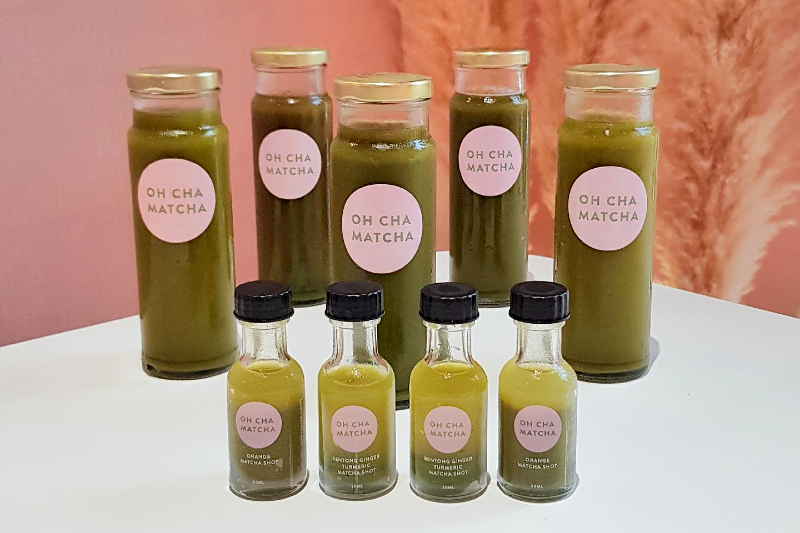
He even shares that he has replaced some of his coffee consumption with matcha, preferring the tea’s combination of caffeine and calming L-theanine amino acids over coffee’s stimulating jolt. For those who are willing to dispense with palate pleasers in favour of getting the job done, Oh Cha Matcha offers concentrated shots of matcha paired with orange or Bentong ginger that supercharge the body and immune system. Takeaway teas and blends come in plastic cups that can be returned to the café in exchange for store credit.
The sweet tooth or peckish will not feel deprived here. For a bite that gratifies both Instagram feed and soul, consider the matcha burnt cheesecake or matcha and purple sweet potato soft serve, a tall, mesmerising swirl of vivid green and lavender. “Mention ‘matcha’ and people expect something very sober and serious,” says Kar Heng. “From our interior design to the F&B items, we wanted to create a speciality experience that did not intimidate anyone. The café is big enough for us to host community events like a special yoga class maybe — this is a space where everyone is welcome.”
Niko Neko Matcha, 82A, Lorong Maarof, Bangsar, KL. 019 213 6456. Tues-Sun, 12-7pm.
Matcha Hero Kyoto, Lot P6.16.00, Level 6, Pavilion KL, Jalan Bukit Bintang, KL. 03 2144 3288. Daily, 10am-9pm.
Oh Cha Matcha, 130, Jalan Burhanuddin Helmi, TTDI, KL. Sun-Thus, 10am-8pm; Fri-Sat, 10am-10pm.
This article first appeared on July 13, 2020 in The Edge Malaysia.


